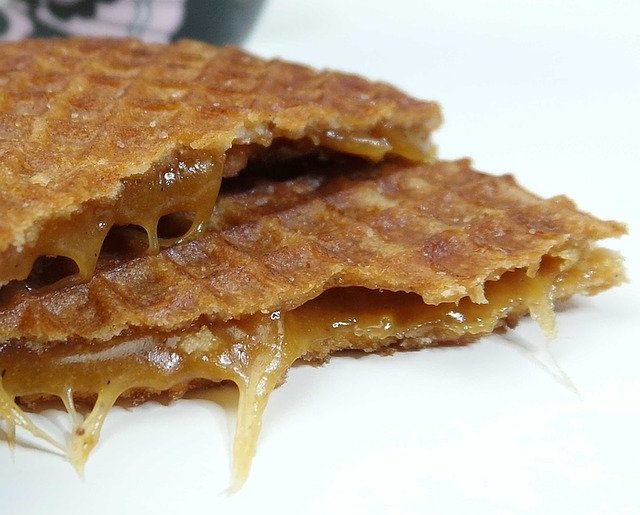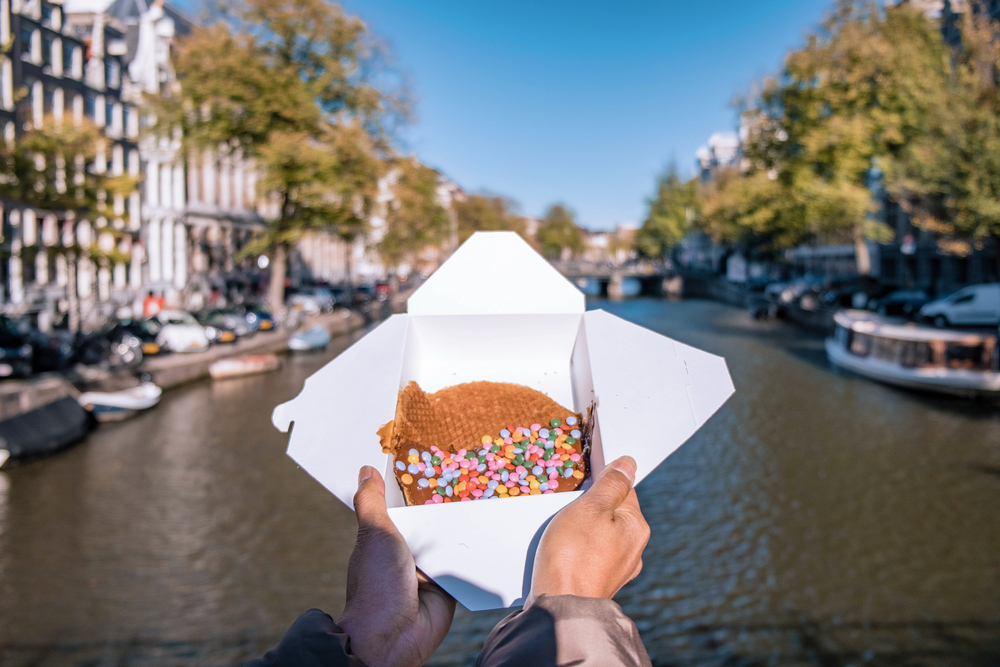A sticky business: Why is everyone lying to tourists?
Molly Quell
Our regular columnist Molly Quell wonders why places that cater to tourists lie to their customers when the perfectly interesting truth is available.
A few weeks ago, I went to a stroopwafel-making workshop in Amsterdam. On the Rembrandtplein. In a building that, during the evening, was obviously a club complete with mirrored bathrooms, coloured-lighting and velvet couches which, even in the dimness, looked sticky.
I had family in town and they wanted to learn how to make stroopwafels. I had no choice in the matter.
I had never made a stroopwafel before and I enjoy stroopwafels so I had hoped I could at least learn how to make one at home. The aggressively hungover teenage boy who checked the tickets – we were taking the class on a Sunday morning – did not inspire much confidence in baking skills.
We were marched through a hotel and up a series of staircases into what, hours before, had been a pulsing club. Some enterprising manager had figured out that they could rake cash off of tourists late into the evening and during the day, setting up the dance floor as a knock off Heel Holland Bakt.
A different teenager, this one complete with apron and chef’s hat, started us off with a history of the stroopwafel.
Now the origins of the delicious syrup treat are not exactly clear but food historians have written entire books on the subject. We do know stroopwafels originated in Gouda somewhere in the late 18th and early 19th century. According to legends, the stroopwafel was created using scraps from other biscuits, creating a cheap treat all levels of society could afford.
Food historian J.A. de Korte, who wrote the book Historie van de Goudse stroopwafelbakkers (History of the Gouda syrup waffle bakers) says there is no evidence in early recipes of using leftovers.
By this time, local guilds had been abolished and there was no local newspaper (support local journalism) so the exact date of its creation is not known. And bakeries were independent operations, unlikely to sue one another over their creations so there is no legal paper trail.
The teenage guide, however, spun a detailed history, including the exact bakery where it was invented and how it became popular with local children. He also described how Gouda cheese was also invented in Gouda.
(The cheese is called Gouda because it was traded there, not because it was made there.)

I understand fake ghost stories, where people expect tall tales, the need to make up or embellish stories for the tourists in the crowd. But the known history of the stroopwafel is interesting and the reason we don’t know more of its origins is interesting as well.
The correct history of the cheese is also interesting. You don’t need a fake story to be entertaining. So why was I listening to lies on a Sunday morning in the middle of a dance club turned bakery?
The deceit continued however. The recipe we used contained yeast, which anyone who has made bread will tell you needs time to work its magic. Instead we slapped our stroopwafel dough onto a hot iron almost immediately.
The yeast was totally pointless but the end result was delicious. So why was the yeast there at all? No one who paid €25 for this course was going to storm out over a lack of yeast.
I have no idea why the falsehoods, either in the story or in the recipe, were a part of the lesson. I do, at least, know how to make a stroopwafel though.
Thank you for donating to DutchNews.nl.
We could not provide the Dutch News service, and keep it free of charge, without the generous support of our readers. Your donations allow us to report on issues you tell us matter, and provide you with a summary of the most important Dutch news each day.
Make a donation